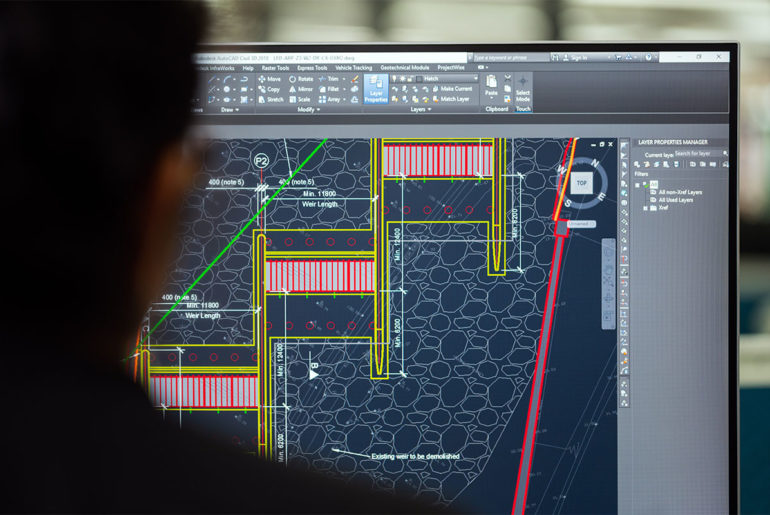IDC’s Future Enterprise Podcast
Future Enterprise brings you thought-provoking and in-depth conversations on the leading edge of technology. Expert-led discussions are focused on how data and technology are reshaping the workplace, applied technology and software. They involve envisioning what the future of remote working will be like, or how organizations need to reshape their industries with digitally-enhanced products and services, or leveraging data for competitive advantages. Our podcast is for business and technology executives and offers applied examples from the field, showing technology trends in action.
Speakers in this Episode

“It is astounding, the speed it takes for a product, built to your customized specifications, to end up right outside your door.”
Joe Pucciarelli, Group Vice President & IT Executive Advisor, IDC
Host of Future Enterprise Podcast

“Industry Ecosystem is the evolution of a traditional value chain approach, into a set of partners working together as a complex, inter-disciplinary unit.”
Jeffrey Hojlo, Research Vice-President, IDC

“The data has to be accurate across ecosystems and not just your own.”
John Comacchio, Senior Vice President and Chief Information Officer at Teknion
What is The Future of Industry Ecosystems Podcast About?
Today, it has become extremely easy to purchase almost anything we want with the click of a button, and, even more incredibly, receive that item within days. This is true for both B2C and B2B settings. The over-simplification of transactions and the convenience and speed of delivery options, masks the extremely complex logistics that factor into getting that product to your front door. Each day, over 6,000 container ships are traversing the oceans to bring raw materials and finished goods to the right hands. In recent news, when a cargo ship was stuck in the Suez Canal, blocking passage, people all over the world felt the toll a disruption like that can cause.
Industry Ecosystems is a complex world that is constantly revolutionizing how business is conducted. Over the years, refining industry ecosystems has shortened manufacturing times, improved quality, and increased speed to market. While marketplaces and global trade are not new concepts, the rapid acceleration of digital technology, is. Today, everything is timed, and this adds to the complexity of supply chains. The bi-directional flow of information of today, is a contrast to the more linear, or end-to-end approach to design and manufacturing of the past.
In IDC’S latest podcast episode, host Joe Pucciarelli, Group Vice President and IT Executive Advisor, IDC, sits down with Jeffrey Hojlo, Research Vice-President, IDC, to discuss the future of industry ecosystems. In this episode, they speak with John Comacchio, Senior Vice President and Chief Information Officer at Teknion. Teknion designs, engineers and manufactures, high-end office furniture that fit clients’ office towers around the world. They are designed to size, fit to size, and fit to their culture. In order to bring the product to their client, the industry ecosystem at Teknion involves order specifications, design, manufacturing, logistics, shipping, and installation. Then, they must connect to their distributors’ ecosystems, who are responsible for local installation, as well as connect to their customers’ ecosystems, to allow them to order and purchase.
Enterprises in every industry are constantly managing several moving parts, to get their goods or services created and delivered to end users. There are many complex inter-disciplinary parts. Today, however, shared data and knowledge allows changes, and decisions, to be made more efficiently. When design may be created in one country, production in another, and consumption in still another market, the reliance on data and technology for seamless inter-dependence and connections becomes apparent. All ecosystems must be connected so decisions can be made on tighter schedules.
In one global survey, IDC looked at how companies are currently planning to approach their industry ecosystem strategy. The resounding answer is to better understand the customer and demand. The solution, or need, then becomes obtaining visibility across the supply chain and becoming a more agile enterprise. But how can you find a way to have a balanced oversight over all your ecosystems? And how do you build faster and more agile operating models? As businesses are reimagined into a new digital form, everything comes down to data. Even in very physical businesses, those businesses must participate in the digital world.
The complexity of industry ecosystems, with multiple participants that need to work together in as real time as possible, to deliver on customer needs, must rely on the sharing economy. Sharing of data and insights enables cross-ecosystem reporting. Sharing of applications results in increased operational efficiency and improved customer experiences. And, finally, sharing operations and expertise will facilitate meeting market demand through scaled capacity and innovation.
While Innovation is hard to create on your own, there are opportunities to find it within your ecosystems. There needs to be a model-based approach to how you think about working with your ecosystem partners and an understanding of each of your partners’ ecosystems. How can you bring these together in an effective way? IDC’s latest podcast episode unpacks the complex world of industry ecosystems.
Listen to the Future of Industry Ecosystems podcast episode and subscribe to Future Enterprise to stay up to date with our new episodes.
IDC’s latest insights can be tailored to your business and your goals. How we help.




